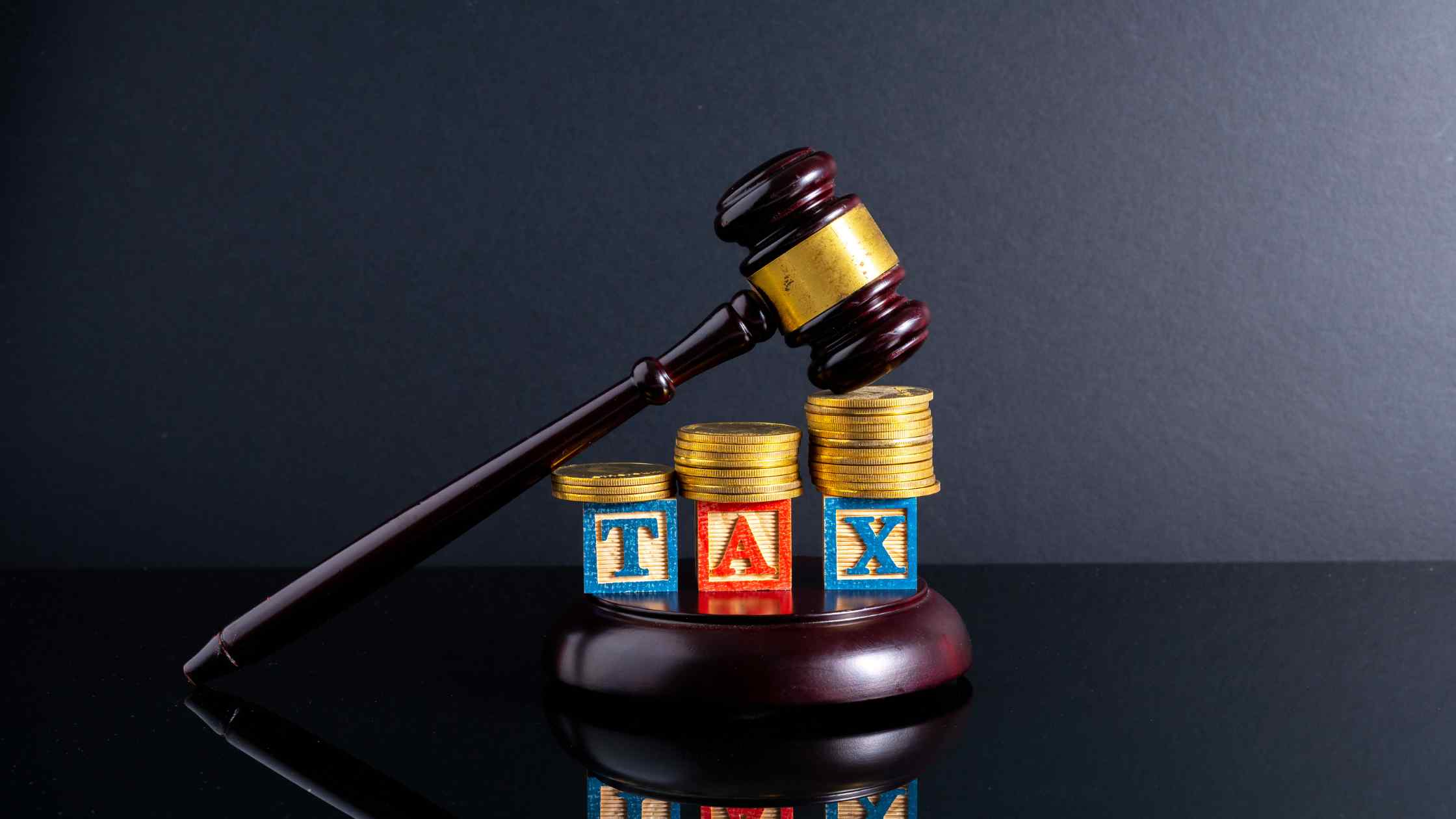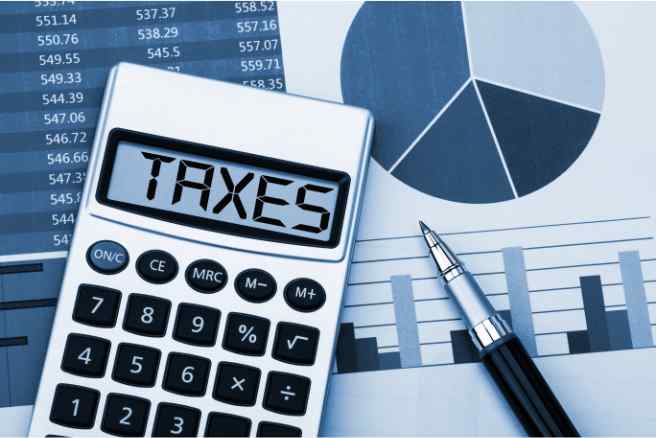

Did you know that 2.82 million unincorporated UK landlords earned an income from renting out property in the 2021/2022 year? A staggering 99% of this number were individual landlords. If you’re one of the many UK landlords collecting rent checks each month or plan to get into property investment, you’re obligated to pay tax on rent income.
The tax rules around rental income may seem complicated, but this guide aims to simplify it. We’ll outline the current tax rates, allowances, and tips to help you file your tax returns properly and maximise your rental income profits from your property investment.
In 2024, all rental income in the UK is subject to tax. As a landlord, you must declare your profits and pay income tax on these earnings each fiscal year.
In England, Wales, and Northern Ireland, the tax you pay depends on your total taxable income, as outlined in the table below.
|
Band |
Taxable Income |
Tax Rate |
|
Personal Allowance |
Up to £12,570 |
0% |
|
Basic Rate |
£12,571 to £50,270 |
20% |
|
Higher Rate |
£50,271 to £125,140 |
40% |
|
Additional Rate |
Over £125,140 |
45% |
Scotland has different income tax bands, as outlined below.
|
Band |
Taxable Income |
Tax Rate |
|
Personal Allowance |
Up to £12,570 |
0% |
|
Starter Rate |
£12,571 to £14,732 |
19% |
|
Basic Rate |
£14,733 to £25,688 |
20% |
|
Intermediate Rate |
£25,689 to £43,662 |
21% |
|
Higher Rate |
£43,663 to £125,140 |
42% |
|
Top Rate |
over £125,140 |
47% |
As a landlord, keeping good records of your income and expenses is essential. We recommend using rental property management software to track everything in one place. Come tax time, your records will make completing your tax return a breeze so you can focus on finding your next property investment opportunity.
At Baron & Cabot, we work to provide investors like you with the tools and guidance needed to generate passive income through your property rental business. Our team of experts can help simplify the tax requirements for your rental business, enabling you to maximise rental profits. You also have the option of using our recommended accountants for the lifetime of your property investment. Contact us today to learn more about our services.
That said, how do you calculate your taxable income the right way? Keep reading to find out!
Correct calculation of tax for rental income as a landlord is crucial for optimising returns and avoiding penalties.
For instance, if you’re an independent landlord in England, your taxable income would be subject to standard income tax rates: 20%, 40%, or 45%, depending on your tax bracket.

Here’s an example:
If your total taxable income (rental income inclusive) is £40,000, this means you’re in the 20% tax bracket. You’ll pay tax on the amount that falls between £12,571 and £50,270 (i.e., £40,000 – £12,571 = £27,429).
This translates to 20% of £27,429 = £5,485.80
On the other hand, if you’re operating as a limited company, your taxable profit will attract Corporation Tax at 19% for profits below £50,000 and 25% for profits above £250,000. For a taxable profit of £40,000, this means £7,600 goes to taxes.
However, there’s more to property tax. There are certain allowable expenses you can claim to reduce your tax burden, and we’ll be walking you through each of these in the following section.
As a landlord, you’ll want to take advantage of any allowable deductions to lower rental property tax burdens. The tax code provides several categories of expenses you can subtract from your rental income to calculate your taxable profit.
These include:
Costs incurred to repair damage or perform routine maintenance on your rental property are typically tax deductible.
This includes expenses such as:
You cannot deduct the cost of improvements that increase the value of residential property or extend the useful life of the property. However, you may be able to depreciate certain improvements over time (more on this later). Check with your tax professional to determine if a particular expense qualifies as a repair or an improvement.
The cost of insurance premiums paid each year to insure your rental property is tax deductible. This includes premiums for hazard insurance, liability insurance, and flood insurance. Umbrella policy premiums can also be deducted to the extent they cover your rental property.
Property management fees refer to the payments made by landlords to property managers or property management companies for the management and oversight of rental properties. These fees are generally tax-deductible as they’re necessary expenses for running a rental business.
To ensure the proper deduction of property management fees, you should keep detailed records of these expenses and include them as part of your overall expenses when filing tax on rent income. Your documentation helps support the claim for the deduction and provides evidence of the expenses incurred.
It’s important to note that tax laws regarding property management fees can be confusing and may vary based on individual circumstances. Therefore, it’s recommended to consult with a tax professional and your letting and management company to ensure compliance and obtain accurate information regarding the deductibility of property management fees.
Capital Gains Tax (CGT) is one of the fees landlords pay when selling a house in the UK, but you may qualify for a relief. Capital Gains Tax Relief refers to the reduction or exclusion of tax on the profit made from selling a property that was previously let out to a tenant. The amount of tax you pay is determined by the “chargeable gain,” which is the gain from the sale minus any eligible Private Residence Relief.
Here’s an example to illustrate:
Let’s say you sold a property and made a gain of £120,000. You owned the property for 15 years, living in it for 7.5 years and letting it out for the remaining 7.5 years. You would receive Private Residence Relief for the time you lived in the property (7.5 years) and for the last 9 months you owned it, even if you weren’t residing in it.
In this case, you would receive Private Residence Relief for 8.25 years (55% of the time) when you owned the property. Consequently, you would not have to pay tax on £66,000 of the gain, which represents 55% of the total gain. The remaining 45% (£54,000) would be the chargeable gain subject to Capital Gains Tax.
It’s important to note that CGT Relief rules may vary based on factors such as the period of ownership and specific circumstances. We recommend consulting with a tax professional or working with UK property investment experts for accurate calculations and understanding of CGT Relief.
Note: There’s a deductible Capital Gains Tax allowance of £6,000 (£3,000 for trusts). This is a tax-free allowance (or annual exempt amount), meaning you don’t pay Capital Gains Tax on the proportion of your total profit that falls under this threshold.
CGT Relief for Partial Letting refers to the tax relief available when you let out only a portion of your home to tenants. In this case, you need to determine the proportion of your home that you lived in, as you’ll only receive Private Residence Relief on that specific proportion of the property income.
Additionally, if you lived in your home at the same time as your tenants, you may qualify for Letting Relief when you sell the property.
Letting Relief on tax from renting a property is calculated as the lowest amount among the following three options:
It’s important to note that Letting Relief does not cover any gain made while your home is empty.
Let’s consider an example to illustrate this:
Suppose you rent out a large bedroom in your home, which constitutes 10% of the total property. And following the sale of your home, you make a chargeable gain of £75,000.
Since 90% of your home was not let out, you would receive Private Residence Relief for £67,500 (90% of the total gain). However, for the remaining gain of £7,500, which relates to the rented bedroom, you would also be entitled to Letting Relief of £7,500.
In this scenario, with the combination of Private Residence Relief and Letting Relief, you would not have to pay any tax on the gain made from letting out part of your home.
By properly documenting these and other allowable deductions, you can reduce your tax liability as a landlord and maximise your net rental income while building a property portfolio. However, there is one more tax allowance to be aware of — property depreciation or capital allowances.
Depreciation allows you to deduct a portion of the cost of a rental property from your taxes each year. This means you can deduct a portion of the purchase price each year plus the cost of any major improvements (discussed earlier in the article).
For example, if you buy a rental property for £200,000, you can deduct £7,273 each year for 27.5 years. This is a great way for both local and international UK property investors to lower their taxable income, reducing the amount of tax owed.
To claim depreciation or capital allowance, you must own the property and use it to generate rental income. The property must have an expected useful life of more than 1 year. You can depreciate the building structure as well as components like the roof, heating/cooling systems, and plumbing. However, you cannot depreciate land since its useful life is indefinite.
Depreciation begins when the property is “placed in service” — ready and available for rent. You must keep good records, including the property’s cost basis, date placed in service, and details of any major improvements. You report depreciation each year on Schedule E, which is filed with your annual tax return.
Depreciation is one of the largest tax perks of real estate investing. It can generate substantial tax savings over the lifetime of a rental property. Work with your tax professional to ensure you’re maximising all eligible depreciation deductions. The tax code favours long-term real estate investors — a good property investment tip is holding for the long run as it allows you to reap the full rewards of depreciation and generate substantial income over time.
With strategic tax planning, you can keep more of the money you earn from your rental property investments. But be sure to stay up-to-date on the latest tax laws to avoid penalties. The UK tax code for landlords is indeed confusing, so working with an accountant or UK property investment experts is highly recommended.
That said, what are the various strategies for reducing potential council tax on landlords? Read on to find out!
As a landlord, one of your largest expenses is often the tax on your rental income.
However, there are several means you can employ to reduce your tax burden and maximise your profits, including the following:

Be sure to claim all allowed deductions for expenses related to your rental property. This includes things like property repairs and maintenance, property management fees, and CGT Relief. Keep accurate records of all expenses to maximise your deductions.
Take advantage of the £1,000 property allowance and £1,000 trading allowance, which can be deducted from your rental income before calculating tax. If your spouse or partner also receives income from the property, they can claim the allowances as well.
If your rental or property business operates at a loss in any tax year, you may be able to offset that loss against other taxable income for that year, reducing your overall tax bill. Any losses not used can be carried forward to offset profits in future years. Note that you must keep records to prove any losses.
Registering your property as furnished holiday lettings (FHL) provides certain tax advantages, as FHL profits are treated as earnings from a trade rather than investment income. FHL profits qualify for certain Capital Gains Tax Reliefs and Entrepreneurs’ Relief.
However, there are certain requirements to qualify residential properties as FHL, including the following:
Forming a limited company to own your rental property may provide tax benefits versus owning the property personally. Company profits below £50,000 are subject to corporation tax at 19%, 1% lower than the basic rate of income tax on personal profits. You can also defer your income tax liability by leaving profits in the company.
However, before opting for this property investment strategy, understand that there are additional administrative expenses in operating a company. Seek advice from UK property investment experts to determine if incorporation makes financial sense for your situation.
Following these tips and strategies can significantly reduce the taxes for landlords, leaving more profit in your pocket at the end of each year. But be sure to stay up-to-date with the latest tax rules to remain compliant. With prudent planning, you can generate good income through your property investments while minimising what you pay in taxes.
The tax you pay on rental income largely depends on your overall income and tax position. If your total income, including rental earnings, is below the tax threshold, you won’t pay any tax. However, if you’re in the basic rate income tax band above, you’ll pay tax at 20% on your rental income that falls within this band. For landlords who have income that falls into the higher rate tax bands, the tax on rental income can be 40% or above. Always check your specific situation, as tax laws can vary.
Yes, in the UK, the first £1,000 of your income from property rental is indeed tax-free; this is known as your “property allowance.” Any other income made above this amount from property rental is taxable according to your specific tax bracket. It’s important to note that tax laws can vary, so it’s recommended to check the regulations applicable to your location and income situation.
The 20% tax credit for landlords is a form of relief that reduces a landlord’s tax bill by 20% of the eligible costs.
It’s calculated based on the lesser of two figures:
However, it’s important to note that this is a credit against tax owed, not a deduction from taxable income. Thus, it can’t generate a tax refund on its own.
Yes, you need to pay tax on rent received from your family. Any rent you receive, regardless of who it’s from, must be declared taxable rental profit for tax purposes. If your rental income—after deducting allowable expenses—is more than your allowance, you’ll need to pay tax on the excess. Always ensure that you report this income to avoid potential penalties from the tax authorities.
In the UK, the first £1,000 you earn from rental income annually is tax-free; this is known as your property allowance. So, if you’re a landlord earning less than £1,000 in rental income, you receive full tax relief on this income, and you don’t have to report it to HM Revenue & Customs (HMRC).
This allowance is particularly beneficial for landlords with minimal rental income, as it eliminates the need for them to calculate and report expenses. However, if your rental income exceeds £1,000, you’ll need to declare it on a Self-Assessment tax return.
As you navigate the world of property investment and rental income, staying up-to-date with the latest tax rules and regulations is essential. Rent income provides an opportunity to build your wealth over time through a stable asset class. However, you must go in with eyes open to the responsibilities and costs involved, especially the tax on rent income owed.
With the right knowledge and advice from reputable UK property investment experts, you can make strategic decisions to maximise returns while avoiding unexpected penalties.
Disclaimer: Any information provided by Baron & Cabot does not constitute financial advice and is for educational purposes only.